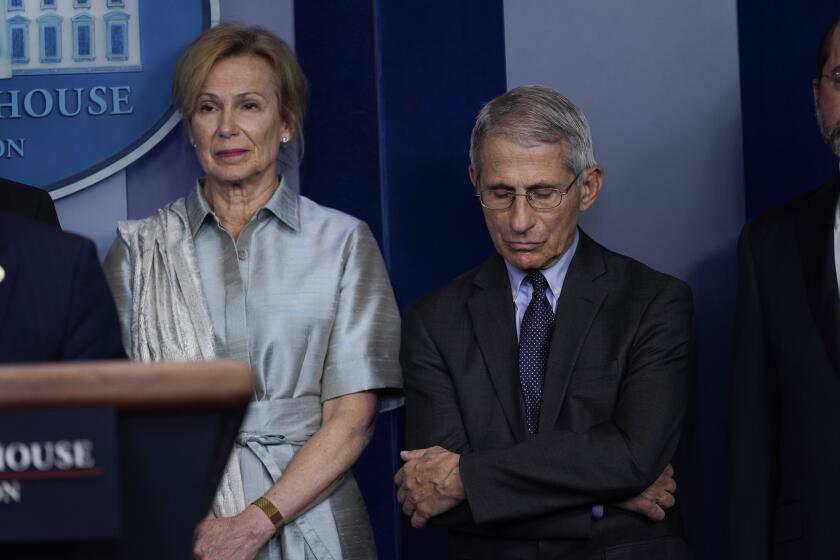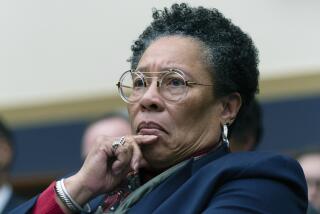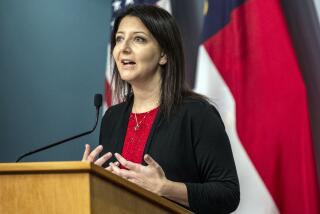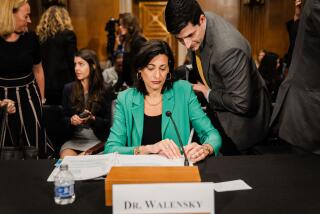White House coronavirus coordinator Deborah Birx says she will retire
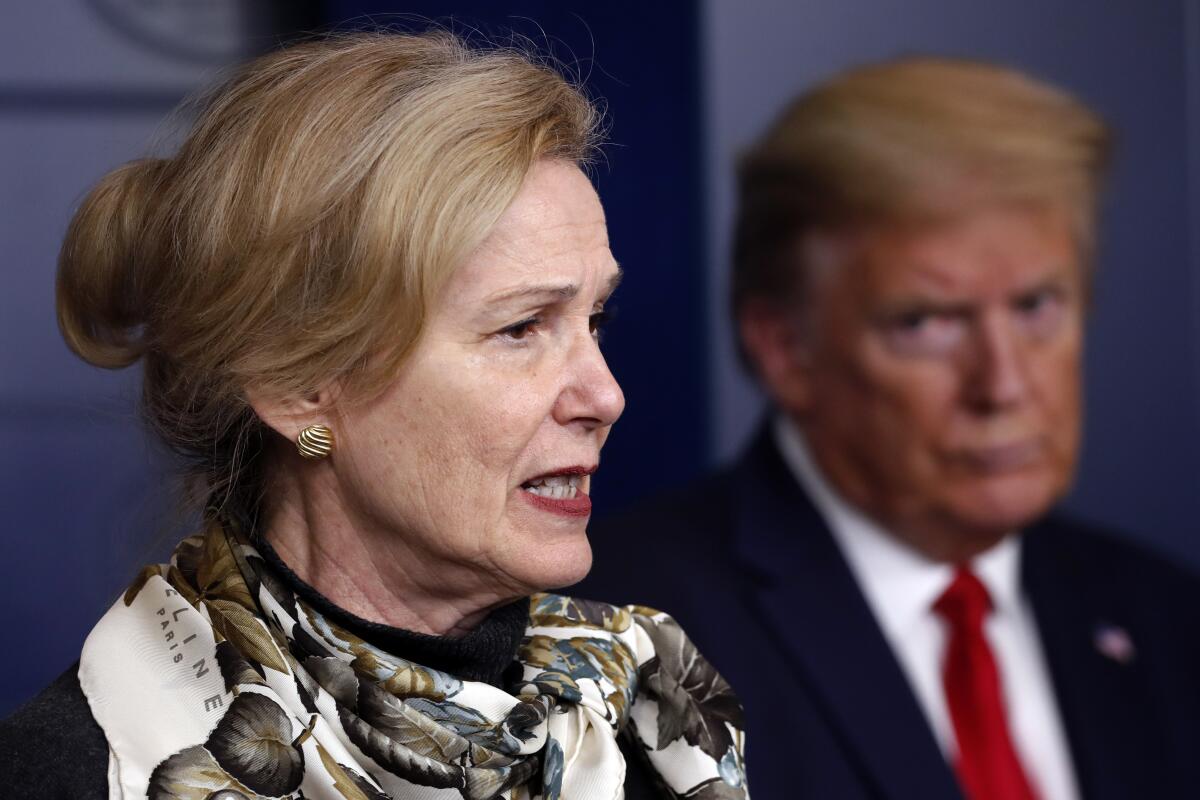
- Share via
WASHINGTON — Dr. Deborah Birx, coordinator of the White House coronavirus response, said Tuesday that she plans to retire but that she is willing to help President-elect Joe Biden’s team with its coronavirus response as needed.
Birx, in an interview with the news site Newsy, did not give a specific timetable for her plans.
“I will be helpful in any role that people think I can be helpful in, and then I will retire,” Birx told the news outlet.
Birx and White House officials did not immediately respond to a request for comment. Her comments came just days after the Associated Press reported that she traveled out of state for the Thanksgiving holiday weekend even as the Centers for Disease Control and Prevention was urging Americans to forgo holiday travel.
Birx acknowledged in a statement Sunday that she went to her Delaware property and was accompanied by family members. She insisted that the purpose of the roughly 50-hour visit was to deal with the winterization of the property before a potential sale — something she says she previously hadn’t had time to do because of her busy schedule.
“I did not go to Delaware for the purpose of celebrating Thanksgiving,” Birx said in her statement, adding that her family shared a meal together while in Delaware.
Dr. Deborah Birx, President Trump’s coronavirus task force coordinator, would like a role in the Biden administration, but her reputation has frayed.
Birx said that everyone on her Delaware trip belonged to her “immediate household,” but she acknowledged that the people who came live in two different homes.
The CDC has asked Americans not to travel over the holidays and discourages indoor activity involving members of different households. “People who do not currently live in your housing unit, such as college students who are returning home from school for the holidays, should be considered part of different households,” it says.
Birx, 64, told Newsy that the scrutiny she has received in her job has been a “bit overwhelming.”
She came to the White House coronavirus task force with a sterling reputation. A public servant since the Reagan administration, Birx has served as a U.S. Army physician and as a globally recognized AIDS researcher. She was pulled away from her ambassadorial post as global AIDS coordinator to help the coronavirus task force in late February.
Fauci and Birx could storm out and publicly speak their minds, but then they’d lose any influence they have on President Trump.
Birx has faced criticism from public health experts and Democratic lawmakers for not speaking out forcefully against President Trump when he contradicted advice from medical advisors and scientists about how to fight the coronavirus.
She stayed in Trump’s good graces far longer than Dr. Anthony Fauci of the National Institutes of Health, who frequently contradicted Trump. But by late summer, Trump had sidelined Birx, too.
White House Press Secretary Kayleigh McEnany said in a tweet Tuesday evening that Trump “has great respect for Dr. Birx and likes her very much.”
“We wish her well!” McEnany added.
Birx had expressed a desire to maintain a significant position on the White House coronavirus task force after Biden’s inauguration next month, according to a person familiar with the Biden team’s personnel deliberations and a Trump administration coronavirus task force official. Neither was authorized to discuss internal deliberations publicly and both spoke on condition of anonymity.
More to Read
Sign up for Essential California
The most important California stories and recommendations in your inbox every morning.
You may occasionally receive promotional content from the Los Angeles Times.

